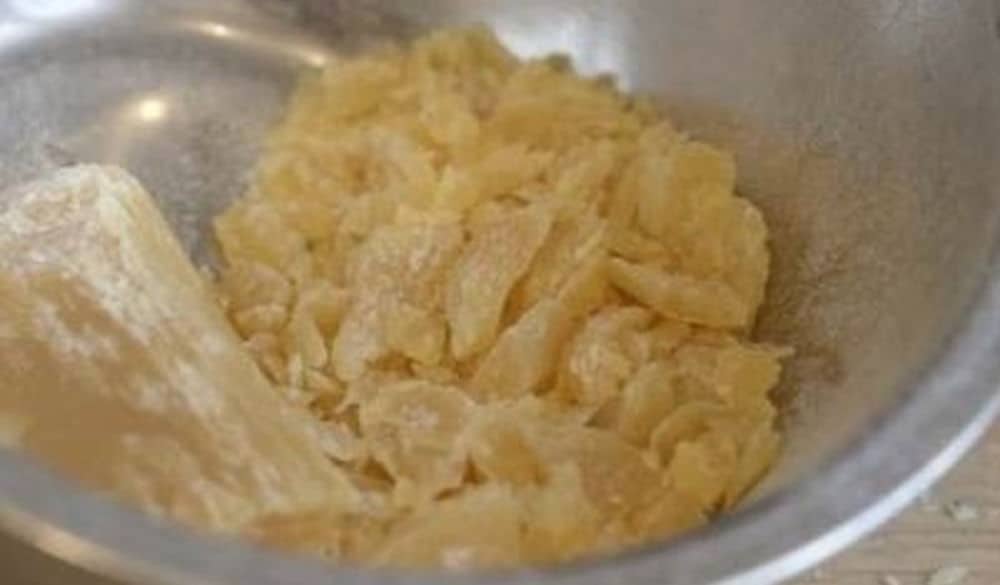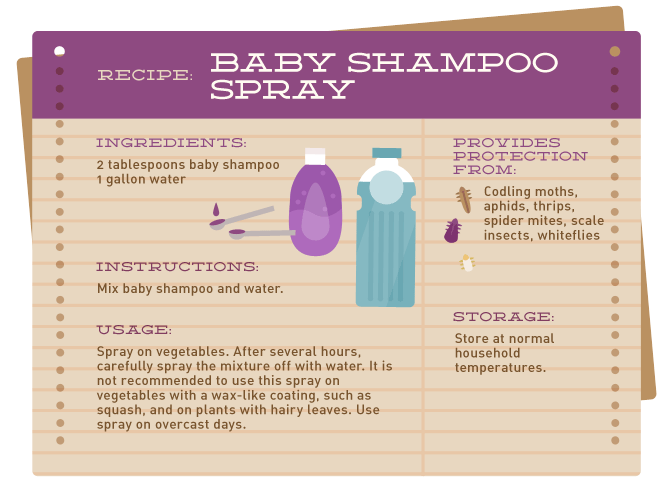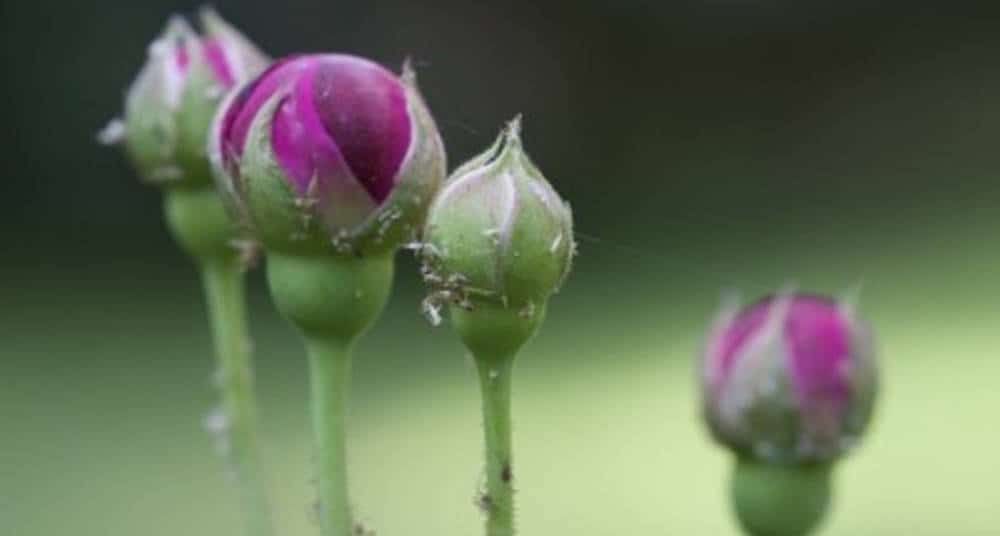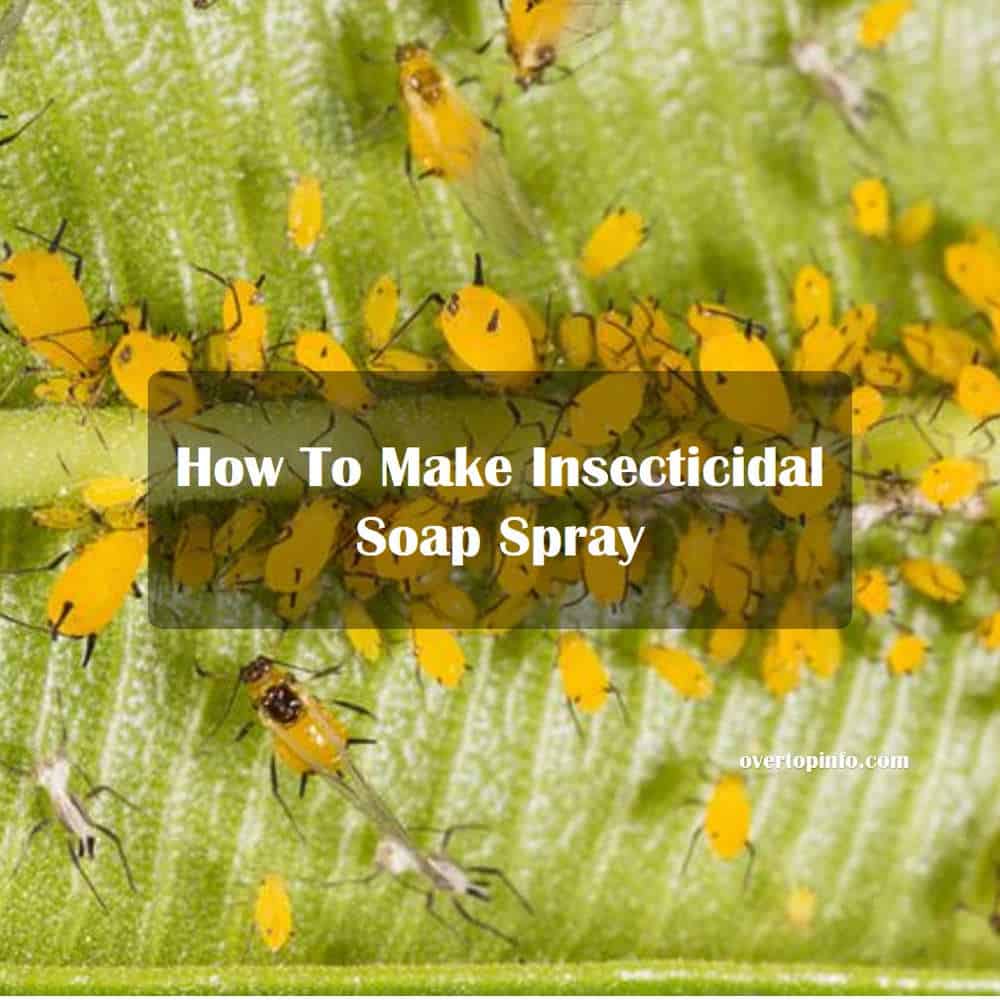The soap is a traditional product manufactured from natural fatty acids, potassium hydroxide, and water. It is a completely biodegradable substance without harsh chemicals. It has antibacterial and insecticidal properties that make it the best insect killer for plants to the organic gardener.
The raised question:
How to make organic insecticidal soap for plants?
It is a very easy DIY process to make insecticidal soap spray at home. But the scary part of the homemade insecticidal soap spray is maintaining the concentration.
Don’t worry!
Here I have discussed a few homemade insecticidal soap recipe for you. Before the recipe to get rid of insects in your garden. You have to know what kind of soap can use to make insecticidal soap. The pure liquid is most suitable. Just make sure that the soap has no harsh or synthetic chemical.
Homemade Natural Insecticidal Soap Spray Recipe

Method 1: Homemade Insecticidal Soap Spray with Marseille Soap
The items will be required-
-
-
- Marseille Soap (Our Pick: Marseille Soap Marius Fabre)
- Organic Olive Oil or Gardening Neem Oil
-
It is better to use the remains of your old soap to make your insecticide (Just make sure that have no harsh chemical)
Grate your marseille soaps finely.
Then make the following mixture:
- 150gm of fine chips,
- Dilute the chips in 1L of boiling water,
- Add to the preparation a tablespoon of oil (olive oil, neem oil),
- Pour the mixer in a spray bottle.
You can also use liquid Marseille soap(Our Pick: Compagnie de Provence Savon de Marseille Extra Pure Liquid Soap). Mix 2-4 tbsp liquid marseille soap into a gallon of water and the rest of the procedure is the same.
Method 2: Natural Insecticidal Soap with Castile Liquid Soap
The items will be required-
- Liquid Soap(Our Pick: Bronner’s – Pure-Castile Liquid Soap)
Liquid soap is more convenient for use against insects and diseases in the garden. You will use it as well to get rid of aphids and other insects that invade your plants.
Personally I like to make soap spray with castile soap and castile soap means Dr. Bronner’s castile soap. That’s why here I will discuss Dr. Bronner’s castile soap insecticide recipe.
Steps
- Mix 1 gallon of warm water with 5 tablespoons of Castile soap.
- Add a teaspoon of vegetable oil to prevent the solution from foaming too much.
- Let the soap dissolved.
- Pour the solution into a sprayer and apply it to the plants.
It is recommended not to do so in direct sunlight. The morning or the evening is the best time to apply insecticidal soap and repeat after 48 hours if necessary. Spray in all directions (360 degrees). The is the best natural homemade insecticidal soap for houseplants to get rid of aphids, spider mites, whiteflies, and others soft-bodied insects
Method 3: Dish Soap Insecticide Recipe with Rubbing Alcohol
Insecticidal soap with isopropyl alcohol can kill insects including scales and ladybugs. To make insecticide with alcohol, follow the steps-
The items will be required-
- Dish soap (our pick: Dawn Ultra Dishwashing Liquid Dish Soap)
- Rubbing alcohol(our pick: Haz 500 ml Isopropyl Rubbing Alcohol)
- Murphy’s oil (our pick: Murphy’s Oil Soap – 32 fluid ounce)
Steps
- Pour 3 cups of rubbing alcohol into a sprayer.
- Add 3 cups of pure water and 1 cup of dish soap with the alcohol.
- Lastly, add a cup of horticulture oil or Murphys Oil Soap (oil and insecticidal soap accelerate the process of insect-killing)
- Apply the solution on the indoor and outdoor plants to remove bugs.
If you don’t have enough time, you can try readily available insect killer soap for plants. Here is the recommended best insecticide to use on vegetables–
If the liquid soap spray burn plant foliage, then uses a diluted solution (Mix extra water). It works slowly but gently for plants. So always careful about insecticidal soap concentration
Bonus: Another Natural Baby Shampoo Spray Recipe For Garden Pests
Additional Ingredients
You can get a better result to add a little amount of other Ingredients with soap spray.
- Cooking Oil: To stick the solution to the plant for a longer period of time. you should apply 1 or 2 tablespoons of cooking oil(Corn Oil, Neem Oil, Canola Oil, Olive or Sunflower Oil)
- White Vinegar: You can also add a tablespoon of white vinegar to a gallon solution. This is very effective for powdery mildew.
- Garlic or Hot Pepper: To remove chewing type insects mix a tablespoon of garlic pest or cayenne pepper powder with per gallon of solution.
Want more homemade plant bug spray? Check this- how to make the garlic spray.
Advantages of Using Homemade Insecticidal Soap
- It is non-toxic and environment-friendly.
- It is a contact insecticide. It only works when it comes to contact the insect.
- It works only soft-bodied insects. It doesn’t harm birds or your pets.
- It is biodegradable and has not any residual effect.
How to Apply Insecticidal Soap on Plants to Kill Insects
Some plants are sensitive to insecticidal soap. So before applying on plant entirely, First apply on small parts of the plant and wait 2-3 days. If everything alright. Then follow the steps below to apply insecticidal soap-
- Make sure the weather is cool and cloud-free. Morning and the evening is the best time to apply. You can also apply the soap spray while most insects are active.
- Shake the solution well.
- Spray some water on the plants.
- Then spray the solution thoroughly. Wet the tops and bottoms of the leaves with the insecticidal soap that insect comes in direct contact with the solution.
- Repeat the treatment a week later, if needed.
How Does the Soap Spray Work?
- It penetrates the cuticle of the treated insect or mite and damages the cell membrane, causing cell contents to spread and dehydration.
- It melts the protective wax that covers certain insects (mealybugs, in particular), which leads to a loss of water by evaporation.
- It blocks the pores through which insects breathe, leading to suffocating.
- Arthropod died quickly, usually within minutes of treatment.
It must still be kept out of the reach of children, because they can get sick if they swallow a large amount, like any other soap.
Insects Affected and Not Affected
Insecticidal soap affects mostly soft-shelled arthropods, a group that includes mostly harmful varieties:
- Whitefly (whiteflies);
- Caterpillars;
- Mealybugs;
- Jumping insects;
- Earwigs;
- Aphids;
- Beetles;
- Sawflies;
- Spider mites (red spider mites).
Normally, it does not kill pollinating insects and predatory insects, at least not adults:
- Bees;
- Lacewings;
- Ladybugs;
- Butterflies;
- Hoverflies.
On the other hand, their larvae are more sensitive. In one study, the treatment killed 98% of the harmful aphids. This product kills predatory mites. It must always be used with discretion.
It must still be kept out of the reach of children, because they can get sick if they swallow a large amount, like any other soap.
Insecticidal soap is not considered toxic to mammals or birds. After all, it’s just soap! If you want to wash with insecticidal soap, go for it!
How to Use Insecticidal Soap 
Use Black Soap as an Insecticide
- Mode of Action:
- Black soap is extremely effective against aphids and other small pests(cochineal, whiteflies, red spider mites, yellow mites, thrips, whiteflies, and psyllids).
- It works by blocking the respiratory pores of various insects and suffocate them. It does not have any preventive action, but only curative.
- Precautions for Use:
- Treat in the morning or evening to avoid full sun and heat.
- Do not spray in rainy weather.
Use Black Soap to Clean the Leaves of Honeydew or Sooty Mold
Following an invasion of aphids or other tiny insects, it is common to observe on the leaves:
- A thin sticky film called honeydew;
- Charcoal black deposits due to a fungus called sooty mold.
In this situation :
- Clear completely the plants from the insect colonies.
- Remove and burn the most affected leaves.
- Clean the remaining sheets with a cloth soaked in liquid black soap diluted in water (2 tablespoons of soap per liter of water).
Use Black Soap as a Wetting Agent
A wetting agent is a product that allows better adherence and efficiency of foliar products (insecticides, fungicides, or liquid fertilizers) and limits the leaching phenomenon due to watering and rain.
A wetting agent is often used to increase the effectiveness of a Bordeaux mixture spray: in this case, instead of buying a commercial wetting product, put in your sprayer 25 tablespoons of liquid black soap for 5 liters of liquid.
Use Black Soap to Clean Everything in the Garden
The insecticidal properties of black soap are not the only ones that are interesting in the garden.
Clean the Terrace and Driveways
- Dilute 2 tablespoons of liquid black soap in 5 liters of warm water.
- Spread this solution on the terrace or driveways.
- Rub with a stiff brush.
- No need to rinse.
Clean Garden Tools
- Rubbing the metal parts of your tools with a brush
- Soaked in pure black soap paste.
- Rinse with clear water.
- Dry with newspaper.
Clean the Barbecue
- After each use, clean grill and grill accessories with a brush
- Soaked in pure black soap paste.
- Rinse with clear water.
Clean the Windows
- Dilute 1 teaspoon of liquid black soap in 2 liters of hot water.
- Soak a rag of this solution and clean your windows.
- Wipe with a dry microfiber cloth.
Detach and Clean Garden Furniture in Teak or Other Wood
- Clean your wooden garden furniture by rubbing it with a brush.
- Soaked in pure black soap paste.
- Rinse with clear water.
- Let it air dry.
Use Black Soap as a Shampoo for Pets
Black soap is ideal for cleaning your pets and shine their hair. It has more antiparasitic virtues (against fleas) and protective against allergy and eczema.
- Start by brushing and combing your pet.
- Moisten your hair thoroughly with lukewarm water.
- Place on the body of the animal some hazelnuts of pure liquid black soap.
- Rub thoroughly.
- Leave on for 5 minutes.
- Rinse with lukewarm water at least 2 times.
- Dry the animal with a towel.
Diseases
Wetting
Liquid black soap use as a wetting agent. A wetting agent is a product that facilitates the dispersion and penetration of a water-based liquid preparation. Thus, the treatment is more effective and less sensitive to leaching.
Examples of uses of black soap as a wetting agent:
- Mixed with Bordeaux mixture: 2% dilution
- 2.5 g of baking soda diluted in one liter of water, added to a teaspoon of liquid black soap and you get a solution to fight against late blight; to be used preferably in prevention.
Cleanser
The plants sometimes need to be cleaned; this is particularly true of fruit trees or rose bushes with sooty mold and black mold that regularly affects. To remove the charcoal deposit, clean them with warm water and black soap
You will notice that I often recommend the use of insecticidal soap to control pests found on plants. Why? Because this product is safe for humans, cheap, eco-friendly, and effective against insects.
Warning
Is soap spray always a safe insecticide?
Many gardeners regularly use dish soap to treat insects and red spiders on their plants. The spray controls the pests of our plants but regular use damages or kills the plant too.
What should we do to avoid kill plants?
- Always use dilute soap spray.
- Do a test small portion of plants to check the tolerance of the plant.
- Do not add other plant destructive additives.
Conclusion
I hope It will help to make soap spray at home. I have tried to cover all the topics related to the DIY insecticidal soap. If I missed anything, don’t hesitate to tell. My audience will be grateful to get information from you.
If you follow my steps to make soap spray for insects. Tell me in the comment section which method you followed and how was the result.
Enjoy your insect-free garden!

